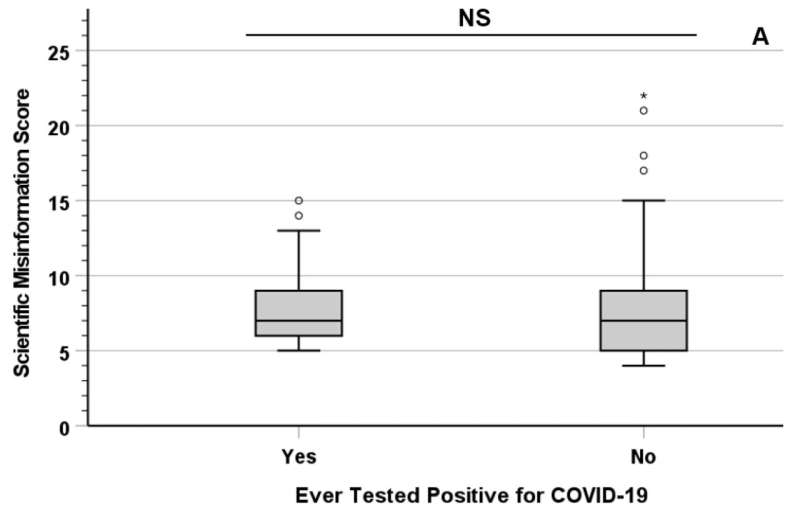This article has been reviewed according to Science X's editorial process and policies. Editors have highlighted the following attributes while ensuring the content's credibility:
fact-checked
trusted source
proofread
Study finds people with a university degree less likely to believe in COVID-19 misinformation

A new study has found that people with a university degree were less likely to believe in COVID-19 misinformation and more likely to trust preventive measures than those without a degree.
Researchers from the University of Portsmouth highlighted that both scientific misinformation and trust in preventive measures were significantly associated with participants' educational levels. However, participants' religious beliefs didn't have any impact on their belief in scientific misinformation or trust in preventive measures.
Dr. Alessandro Siani, Associate Head (Students) in the School of Biological Sciences said, "Perhaps unsurprisingly, we found a significant negative correlation between participants' belief in scientific misinformation and their trust in preventive measures. Basically, participants who expressed greater belief in fake news regarding the pandemic were less likely to believe that vaccines, face masks and social distancing are effective preventive measures."
A cross-sectional online survey of a UK population sample was conducted with a total of 218 adult UK residents taking part. The survey found that only 13 percent of participants agreed with the statement "I believe that the UK government responded to the COVID-19 pandemic appropriately," while 54 percent disagreed and 33 percent expressed a neutral opinion.
The researchers also found that neither belief in COVID-19 fake news nor trust in preventive measures were statistically associated with participants' likelihood of having contracted COVID-19. This finding reinforces the notion that preventive measures (vaccinations, face masks, social distancing) rely on widespread community adoption, as pathogens can still circulate within a population unless the vast majority engages in appropriate preventive behaviors.
Dr. Siani said, "Despite its limitations, this study furthers our understanding of the links between scientific misinformation and reluctance to comply with infection-prevention measures. It is unlikely that COVID-19 will be the last pandemic we'll experience in our lifetimes, so it is important to learn as much as we can from our past experiences to improve our global responses to future challenges."
The research is published in the journal Vaccines.
More information: Alessandro Siani et al, Scientific Misinformation and Mistrust of COVID-19 Preventive Measures among the UK Population: A Pilot Study, Vaccines (2023). DOI: 10.3390/vaccines11020301




















